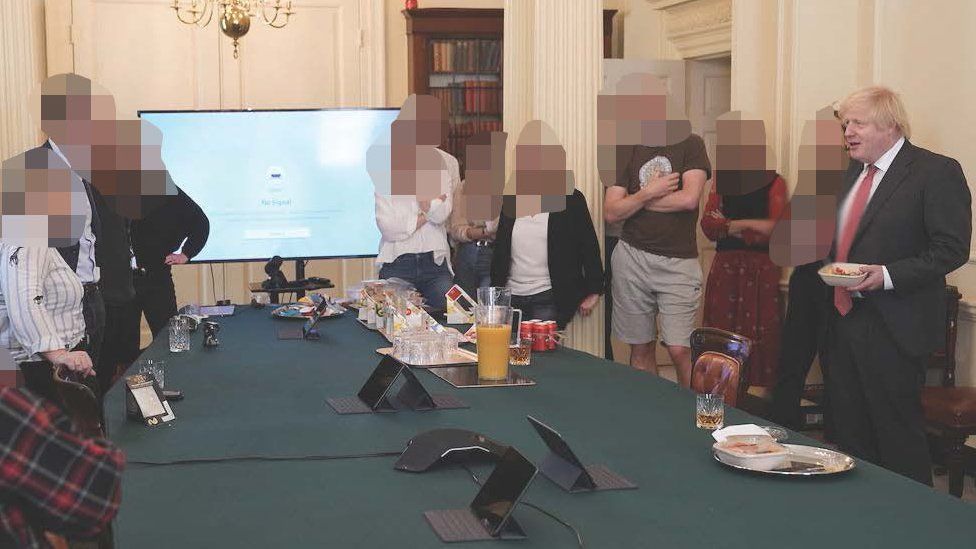The former prime minister is battling accusations he misled Parliament over rule-breaking lockdown parties in Downing Street during his tenure.
He has admitted his initial assurances in 2021 that Covid rules were followed completely did mislead MPs.
But he says this was not deliberate and that the hearing will vindicate him.
The former premier, who was ousted from office last year after a string of scandals, faces being potentially suspended if MPs decide he deliberately misled them.
The seven-member Commons privileges committee is investigating whether what Mr Johnson told Parliament stopped it from properly holding him to account.
At 14.00 GMT on Wednesday, the committee will get its chance to question him live on TV, in a hearing that could last several hours.
He is expected to be flanked by members of his taxpayer-funded legal team, with whom he will be able to confer during the session. Mr Johnson also hopes to have some of his supporters in the room.
However, he will have to answer questions himself, and will take an oath on the King James bible before the hearing begins.
Before the hearing, at 09.00 GMT the committee will publish a “core bundle” of evidence that is expected to be referred to during the hearing.
All the evidence amassed by the committee, including written statements from 23 witnesses, official diaries, and emails between officials, has already been handed over to Mr Johnson’s legal team.
His lawyers have given the committee 46 WhatsApp messages between the former prime minister and five unnamed people.
Media stories about staff parties in Downing Street when Covid rules banned socialising indoors began to emerge in late 2021, later becoming known as the Partygate scandal.
On several occasions afterwards, Mr Johnson told the House of Commons that Covid rules had been followed in Downing Street.
But an inquiry by senior official Sue Gray later found rule-breaking had taken place at multiple events, and police issued fines to 83 people, including Mr Johnson himself, for breaching Covid laws.
The committee, chaired by veteran Labour MP Harriet Harman, but with a Conservative majority, said earlier this month that breaches of pandemic guidance would have been “obvious” to him at the time.
However that was rejected by Mr Johnson on Tuesday, in a 52-page document setting out his defence ahead of the TV hearing.
Birthday gathering
In the submission, he said his assurances to MPs that lockdown rules had been followed were made in “good faith”.
He had not “intentionally or recklessly” misled MPs, he added, and would “never have dreamed of doing so”.
He said he had not considered at the time that events he attended himself, including a June 2020 birthday gathering in No 10 for which he was fined, had been in breach of the rules.
For other events he had not attended, he said he had not been told by his officials that they broke the rules – and it was reasonable of him to trust their account.
He also took aim at the committee itself, accusing of departing from the precedents set by previous inquiries.

The committee has decided that whether he intended to mislead MPs is not relevant in deciding whether he stopped Parliament from doing its job, known as a “contempt”.
But if they decide a contempt was committed, his intentions will be considered when deciding any punishment they recommend.
A finding that he deliberately misled MPs is likely to attract the strongest sanction. Another option is they conclude he misled Parliament “recklessly”.
In his submission, the former prime minister hit out at this reasoning, saying the idea of misleading MPs recklessly was an “entirely novel concept”.
The full House of Commons will have to approve the committee’s final recommendations, as well as any sanctions, which range from ordering him to apologise to suspending him from the Commons.
Conservative MPs will be given a free vote, meaning they will not be told how to vote by party managers.
If he is suspended for more than 10 days, this could trigger a by-election in his constituency – although suspensions of this length have been rare in the past.















































